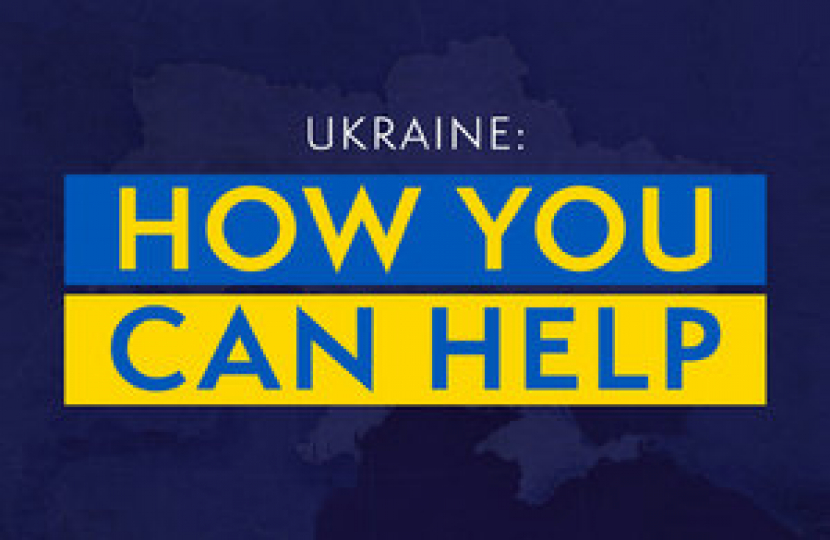
This article was written by Damian and published in this week's editions of the Herald and Petersfield Post:
"The images reaching us from towns and cities under siege in Ukraine are truly heart-breaking.
The appalling acts of aggression from Putin’s forces have created a humanitarian crisis on a vast scale.
Poland is leading the efforts in the region, with many more also in nearby countries such as Moldova and Romania. Many Ukrainians will want to stay close to their homeland.
The UK and other nations are working together to support those efforts, through both financial and humanitarian aid. The UK government has committed £220m.
Some, though, will want to come to other countries, including Britain, and we must do all we can to help and support them.
Building on the Family Migration Route, a new Ukrainian Family Scheme has been announced and is now operational.
Additional staff have been surged in UK visa centres across Europe, with particular attention of course to places near Ukraine. Pop up centres have been set up in locations by the border where there are especially large numbers of displaced people – mostly women and children.
The extended family programme enables people already settled here to bring Ukrainian extended family members over, whether it be a spouse, civil partner, unmarried partner, child under 18, stepchild, grownup children, parents, grandparents or siblings.
Normal requirements for salary or language tests will be waived. It is estimated that 200,000 would be eligible for this route, although it may be more, and there is no cap or limit to those who may use the scheme.
It is free of charge and those coming to the UK will have leave to stay for three years. They will be able to work, and access public funds.
Family and community connections should help in the settling process and adjusting to living away from everything that was familiar.
A sponsorship pathway will also open for Ukrainians who may not have family ties to the UK, matching people with individuals, charities, businesses and community groups.
Those coming can be both people known to the sponsors, or not. The Communities Department will make sure that those wanting to sponsor can volunteer and be matched rapidly with Ukrainians in need.
This is a broader scheme than we have had before, and obviously the appropriate safeguards and checks must be in place, to ensure people arriving in such a traumatic experience are fully and safely supported. It will take a little longer than the extended family scheme to set up but is being progressed at pace.
Ukrainians who are already here on work, study or visit visas will be able to apply to move to different visa routes free of charge, and those on an existing points-based system can extend their leave in the UK.
I know many people across East Hampshire and elsewhere are giving very generously, and many local community groups and charities have already set up collection points for donations of goods and essential supplies.
I’m afraid that, unbelievably, even in these circumstances, there are scammers who seek to take advantage of the misery, and people’s generosity – and the internet can make their job easier. Safest is to give to an established charity that you recognise and trust.
Making a donation to the Disasters Emergency Committee (DEC) Ukraine Appeal is one of the most direct ways to help those most in need, and significantly, the UK Government is match funding public donations to this appeal pound-for-pound up to £25 million.
More useful advice on both national and local organisations supporting Ukrainians is available on the Hampshire County Council website, at www.hants.gov.uk/ukraine
In particular, I want to highlight the work of the Rural Refugee Network, a local charity that has since 2015 welcomed and resettled families from Syria, Sudan and Afghanistan into safe homes locally.
I know they are ready and willing to support Ukrainians, including providing advice for individuals or groups willing to act as sponsors. More information is available at https://www.ruralrefugeenetwork.org/ "


